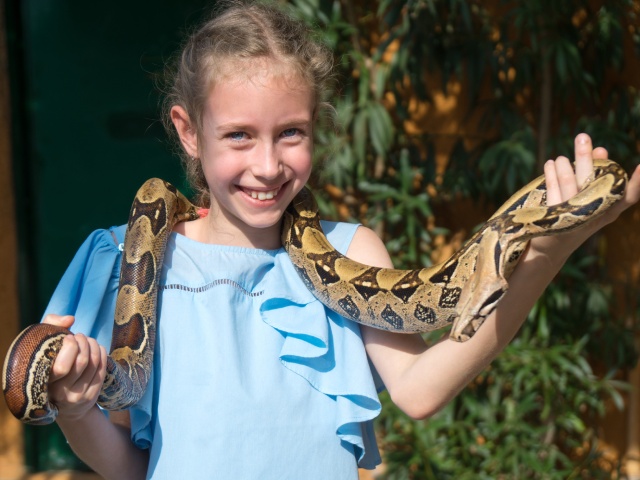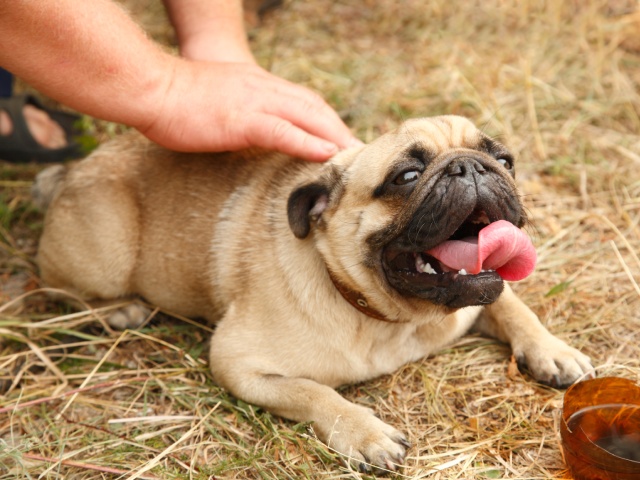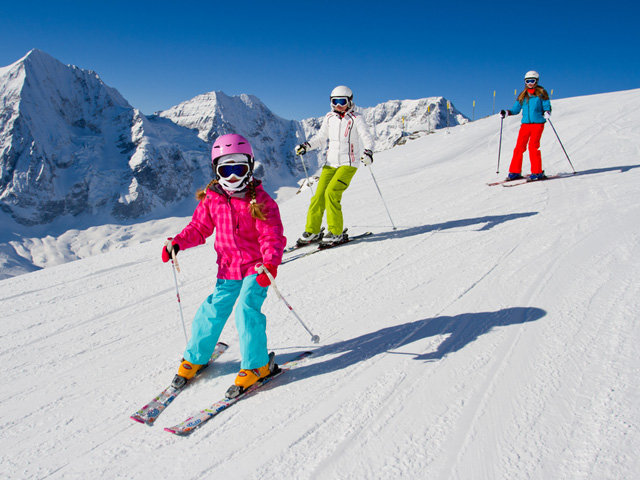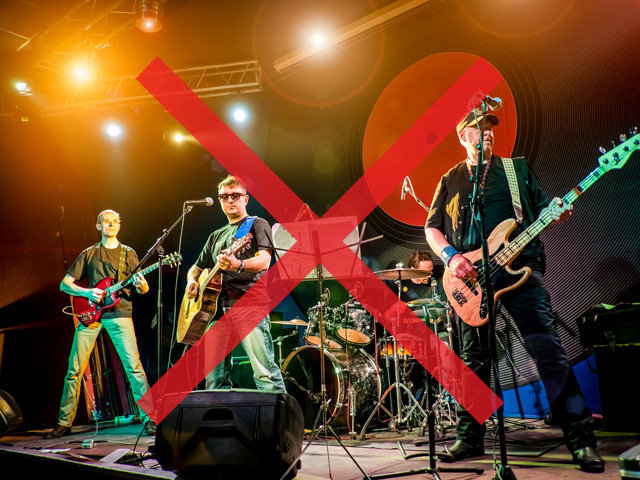I'm, isn't, won't... (A1)
Contractions (142)
Stažené tvary
Stažené tvary – procvičování:
I'm from Canada and he's from the USA. = Já jsem z Kanady a on je z USA.
|
I am
|
I'm
|
|
he is
|
he's
|


Stažené tvary (contractions) jsou zkrácené konstrukce s apostrofem. Často se jedná o podmět se slovesem nebo sloveso s NOT:
|
he is
|
he's
|
|
John is
|
John's
|
|
is not
|
isn't
|
|
would not
|
wouldn't
|
Ve stažených tvarech používáme především slovesa pomocná (be, have, do...) nebo způsobová (would, could, should...):
| Podmět + sloveso | |
|---|---|
| BE | I'm, you're, he's... |
| HAVE | I've, you've, he's... |
| WILL | I'll, you'll, he'll... |
| WOULD | I'd, you'd, he'd... |
| LET + US | let's |
| Sloveso + NOT | |
|---|---|
| BE | isn't, aren't |
| wasn't, weren't | |
| HAVE | haven't, hasn't |
| DO | don't, doesn't |
| didn't | |
| WILL | won't |
| WOULD | wouldn't |
| CAN | can't |
| COULD | couldn't |
| SHOULD | shouldn't |
Zkrácené tvary jsou běžné v mluveném jazyce a v psané hovorové angličtině. Ve formálnější angličtině je obvykle nepoužíváme.
We'd like to rent kayaks tomorrow. = Rádi bychom si zítra půjčili kajaky.
| Hovorové: | We'd like to... |
| Formálnější: | We would like to... |


Apostrof ' = nahrazuje chybějící písmeno/a
Při tvorbě stažených tvarů píšeme místo dvou slov jedno kratší slovíčko (we will → we'll; did not → didn't...). Jednotlivé části staženého tvaru jsou spojeny apostrofem ('), který zastupuje chybějící písmeno nebo více písmen:
|
We'll (= We will) fly to Mexico.
|
Poletíme do Mexika. |
|
We'd (= We would) like to swim.
|
Rádi bychom si zaplavali. |
|
We didn't (= did not) eat anything.
|
Nic jsme nejedli. |
|
We couldn't (= could not) find you.
|
Nemohli jsme tě najít. |
Všimněte si, že ve spojení podmětu a slovesa zkracujeme sloveso (will → 'll, would → 'd), zatímco ve spojení slovesa a NOT zkracujeme NOT (not → n't).
Pokud používáme stažený tvar pomocného slovesa ('m, 'd, 's...), podmět je obvykle osobní zájmeno (I, you, he, she, it, we, they):
|
I'm (= I am) a bit hungry.
|
Mám trochu hlad. |
|
They'd (= They would) visit you.
|
Navštívili by tě. |
|
He's (= He has) travelled a lot.
|
Hodně cestoval. |
V kombinaci se staženým pomocným slovesem používáme také někdy WHO, WHAT, HOW, WHERE, THAT, THERE, HERE nebo podstatné jméno (name, John, friend...):
|
Who's (= Who is) he?
|
Kdo to je? |
|
What's (= What is) his name?
|
Jak se jmenuje? |
|
Where's (= Where has) he lived?
|
Kde žil? |
|
That's (= That is) a very tall man.
|
To je velmi vysoký muž. |
|
There's (= There is) ice cream.
|
Je tu zmrzlina. |
|
Here's (= Here is) your coffee.
|
Tady je tvoje káva. |
|
His name's (= name is) John.
|
Jmenuje se John. |
|
John's (= John has) worked in Italy.
|
John pracoval v Itálii. |
Tato slovíčka používáme především se 'S (is, has).
Where's Erica? There's a package for her. = Kde je Erica? Je tu pro ni balík.
|
where is
|
where's
|
|
there is
|
there's
|


What's happened to your leg? = Co se ti to stalo s nohou?
|
What has happened?
|
What's happened?
|


BE přítomný čas = 'm, 's, 're; isn't, aren't
BE minulý čas = wasn't, weren't
Sloveso BE použijeme v přítomném čase ve staženém tvaru s podmětem (I, you, he...) nebo s NOT:
| Podmět + BE | |
|---|---|
|
I'm
|
we're
|
|
you're
|
you're
|
|
he's
she's
it's
|
they're
|
| BE + NOT | |
|---|---|
|
I am not
|
we aren't
|
|
you aren't
|
you aren't
|
|
he isn't
she isn't
it isn't
|
they aren't
|
Všimněte si, že AM NOT nestahujeme. Neříkáme: amn't
IS/ARE + NOT lze zkrátit dvěma způsoby:
|
It's not raining.
|
Neprší. |
|
It isn't raining.
|
|
|
They're not playing.
|
Nehrají. |
|
They aren't playing.
|
V minulém čase se WAS/WERE stahuje s NOT:
| WAS/WERE + NOT | |
|---|---|
|
I wasn't
|
we weren't
|
|
you weren't
|
you weren't
|
|
he wasn't
she wasn't
it wasn't
|
they weren't
|
It's possible that he's not working. I'm not sure. = Je možné, že nepracuje. Nejsem si jistý.
|
it is
|
it's
|
|
he is
|
he's
|
|
I am not
|
I'm not
|


Were you scared? – No, I wasn't. I love snakes. = Měla jsi strach? – Ne, neměla. Miluju hady.
|
was not
|
wasn't
|
|
were not
|
weren't
|


HAVE předpřítomný čas = 've, 's; haven't, hasn't
Pomocné sloveso HAVE použijeme v předpřítomném čase ve staženém tvaru s podmětem (I, you, he...) nebo s NOT:
| Podmět + HAVE | |
|---|---|
|
I've been
|
we've been
|
|
you've been
|
you've been
|
|
he's been
she's been
it's been
|
they've been
|
| HAVE + NOT | |
|---|---|
|
I haven't been
|
we haven't been
|
|
you haven't been
|
you haven't been
|
|
he hasn't been
she hasn't been
it hasn't been
|
they haven't been
|
Stažené tvary IS a HAS jsou stejné. Porovnejte:
| 'S (= is) | 'S (= has) |
|---|---|
|
He's my cousin.
|
He's been to Canada.
|
|
He's a dentist.
|
He's worked as a dentist.
|
We have travelled to more than twenty countries. = Procestovali jsme více než dvacet zemí.
| We have travelled... | We've travelled... |


Pozor, samostatné HAVE/HAS s významem mít; vlastnit používáme pouze nezkrácené:
|
I have two sisters.
|
Mám dvě sestry. |
|
He has a new bike.
|
Má nové kolo. |
Nikoliv: I've two sisters., He's new bike.
They have so many flavours here! = Mají tu tolik příchutí!
|
They've They have many flavours!
|


DO přítomný čas = don't, doesn't
DO minulý čas = didn't
Sloveso DO použijeme v přítomném i minulém čase ve staženém tvaru s NOT:
| DO + NOT | |
|---|---|
|
I don't
|
we don't
|
|
you don't
|
you don't
|
|
he doesn't
she doesn't
it doesn't
|
they don't
|
| DID + NOT | |
|---|---|
|
I didn't
|
we didn't
|
|
you didn't
|
you didn't
|
|
he didn't
she didn't
it didn't
|
they didn't
|
This shirt doesn't fit me. I don't want it. = Ta košile mi nesedí. Nechci ji.
|
does not
|
doesn't
|
|
do not
|
don't
|


WILL = 'll, won't
WILL použijeme ve staženém tvaru s podmětem (I'll, you'll, we'll...) nebo s NOT (won't):
|
I'll (= I will) go cycling.
|
Pojedu na kole. |
|
We'll (= We will) watch a movie.
|
Budeme se dívat film. |
|
It won't (= will not) rain.
|
Nebude pršet. |
|
You won't (= will not) need an umbrella.
|
Nebudeš potřebovat deštník. |
I hope she'll like the present. = Doufám, že se jí dárek bude líbit.
|
she will
|
she'll
|
|
she will not
|
she won't
|


WOULD = 'd, wouldn't
WOULD použijeme ve staženém tvaru s podmětem (I'd, you'd, we'd...) nebo s NOT (wouldn't):
|
I'd (= I would) go running with you.
|
Šel bych si s tebou zaběhat. |
|
We'd (= We would) like to sell the flat.
|
Chtěli bychom prodat ten byt. |
|
She wouldn't (= would not) feel safe alone.
|
Sama by se necítila bezpečně. |
I wouldn't book this flight. It's quite expensive. = Tento let bych nerezervoval. Je docela drahý.
|
I would not
|
I wouldn't
|
|
I would
|
I'd
|


CAN = can't
COULD = couldn't
SHOULD = shouldn't
CAN, COULD, SHOULD použijeme ve staženém tvaru s NOT:
|
You can't (= cannot) smoke here.
|
Nesmíte tady kouřit. |
|
She couldn't (= could not) help us.
|
Nemohla nám pomoci. |
|
They shouldn't (= should not) eat so much.
|
Neměli by tolik jíst. |
It was too hot for Carlos. He couldn't live in Spain. = Pro Carlose bylo příliš horko. Nemohl by žít ve Španělsku.
|
could not
|
couldn't
|


LET'S = let us
Spojení LET + US zkracujeme na LET'S. Pomocí LET'S často něco navrhujeme:
|
My legs hurt. Let's sit down.
|
Bolí mě nohy. Pojďme se posadit. |
|
Let's have grilled cheese on toast!
|
Dejme si topinku s grilovaným sýrem! |
Nestažené LET US se používá pouze ve velmi formální angličtině.
Let's make pizza tomorrow! = Pojďme zítra udělat pizzu!
|
let us
|
let's
|


Na horách
A1:Cvičení: Na horáchThere's a lot of snow. Let's go skiing. = Je spousta sněhu. Pojďme lyžovat.
|
there is
|
there's
|
|
let us
|
let's
|


You shouldn't climb alone. It's dangerous. = Neměl bys lézt sám. Je to nebezpečné.
|
should not
|
shouldn't
|
|
it is
|
it's
|


Hudba
A1:Cvičení: HudbaWe won't go to the concert. The tickets are sold out. = Na koncert nepůjdeme. Vstupenky jsou vyprodané.
|
will not
|
won't
|
|
we will
|
we'll
|


I've been singing in a band for two years. = Už dva roky zpívám v kapele.
| I have been... | I've been... |


Popis vlastností lidí
A1:Cvičení: Popis vlastností lidíMy boyfriend is great! He's smart and very handsome. = Můj přítel je skvělý! Je chytrý a velmi pohledný.
|
he is
|
he's
|
|
he is not
|
he isn't
|


Ann wouldn't help you. She's too lazy. = Ann by ti nepomohla. Je příliš líná.
|
would not
|
wouldn't
|
|
she is
|
she's
|


Stažené tvary – shrnutí:
| Podmět I, YOU... + sloveso | |
|---|---|
| BE | 'm (am) 's (is) 're (are) |
| HAVE | 've (have) 's (has) |
| WILL | 'll |
| WOULD | 'd |
| LET + US | let's |
| Sloveso + NOT | |
|---|---|
| BE | isn't (is not) aren't (are not) |
|
wasn't (was not) weren't (were not) |
|
| HAVE | haven't (have not) hasn't (has not) |
| DO | don't (do not) doesn't (does not) |
| didn't (did not) | |
| WILL | won't (will not) |
| WOULD | wouldn't (would not) |
| CAN | can't (cannot) |
| COULD | couldn't (could not) |
| SHOULD | shouldn't (should not) |
Doporučujeme si procvičit stažené tvary (contractions) v našich cvičeních.
